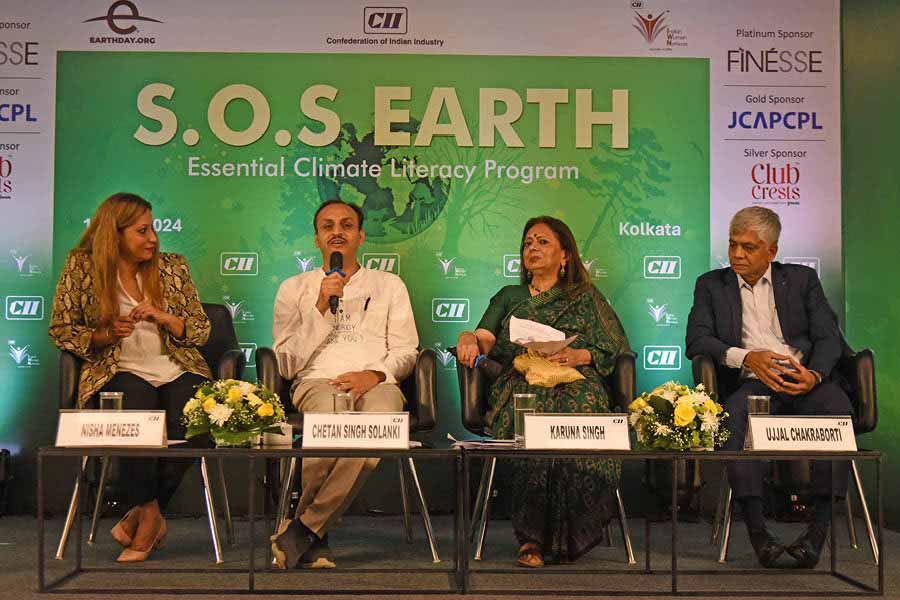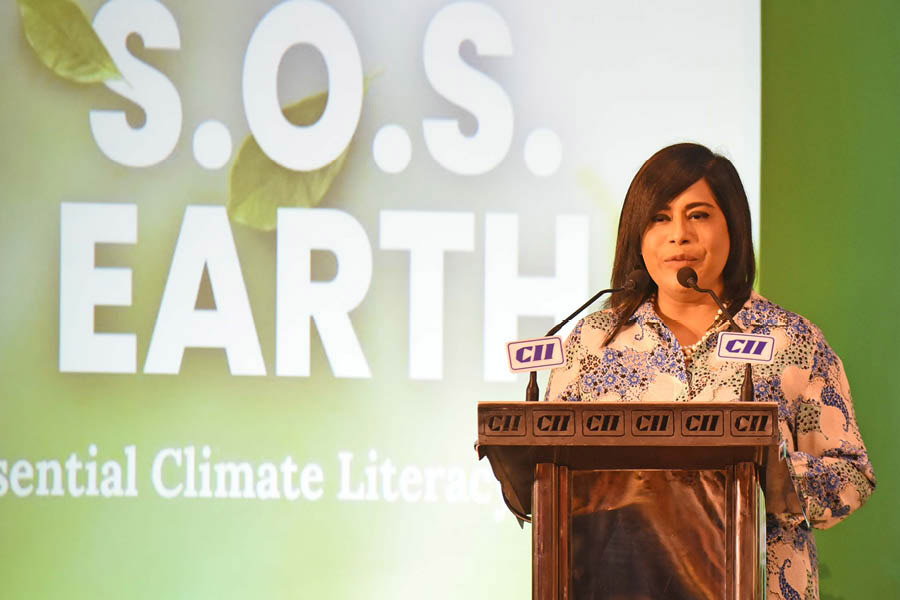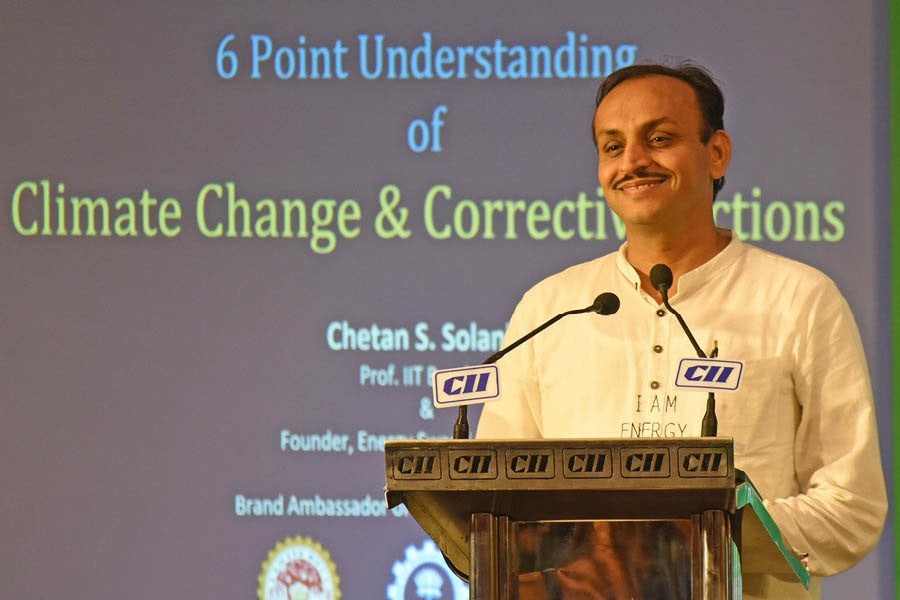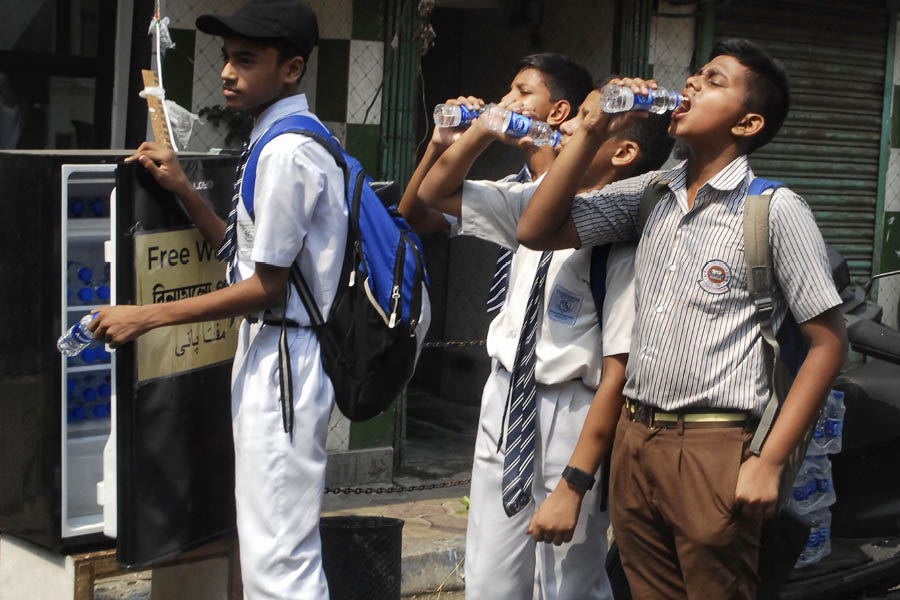Solar Man of India Chetan Singh Solanki offered valuable insights into the role of renewable energy in combating climate change at a programme hosted by the Confederation of Indian Industry (CII) - Indian Women Network (IWN) West Bengal Chapter, in collaboration with Earth Day Network, in Kolkata recently.
The need to address climate change and create an understanding of the science, while initiating actions needed to mitigate its effects, were the highlights of The ‘SOS Earth - Essential Climate Literacy Programme’. The event held at a city hotel aimed to educate and inspire individuals to adopt sustainable practices by bringing together a diverse group of leaders and influencers.

The panellists of SOS Earth - Essential Climate Literacy Programme at the city event.
Sujata Guin, chairperson of the CII Indian Women Network; Smita Chatterji, vice-chairperson of CII Indian Women Network, West Bengal Chapter; and Swagata Guha Mustafi, chairperson of CII-IWN West Bengal ESG Taskforce, played significant roles in organising and leading the discussions.
Solanki, drawing from his extensive experience in solar energy and sustainability, emphasised the importance of energy self-sufficiency through solar power, highlighting how individual actions can collectively contribute to global sustainability.
“As humans we are always around energy, carbon-based energy. The point that I want to bring forth is that how do we go from wrong energy to right energy but in the correct way and at the correct time. I strongly believe that there must be minimisation that can be easily practised. e.g. not buying a pair of clothes this year, using pen less, switching off lights when not in use and so on,” Solanki said.
The other participants in the panel discussion were engaged in insightful presentations, discussions and interactive sessions that deepened their understanding of environmental challenges and the solutions available. These sessions highlighted how critical it is for individuals and organisations to adopt sustainable practices and support renewable energy initiatives.

Sujata Guin, the chairperson of CII Indian Women Network, speaks at the event.
“We are focused on educating the community at large about climate change and the adverse impacts it can bring as a whole. To create this awareness in the long run, we all need to take both individual and collective steps as a whole. Today, people go to rural areas to plant trees. As a result, these areas are lush and green but what about urban areas? This is where we need to make a difference. I think cities need a lot of focus for change to happen,” added Sujata Guin, chairperson of CII Indian Women Network.
A climate-literate population can make informed decisions about personal and policy choices that affect the environment. Educating people about climate change and its health impacts can promote behaviours that protect public health. This includes awareness about heatwaves, vector-borne diseases and air quality issues linked to climate change. The ‘SOS Earth - Essential Climate Literacy Programme’ was a reminder of the collective effort required to address climate change.


